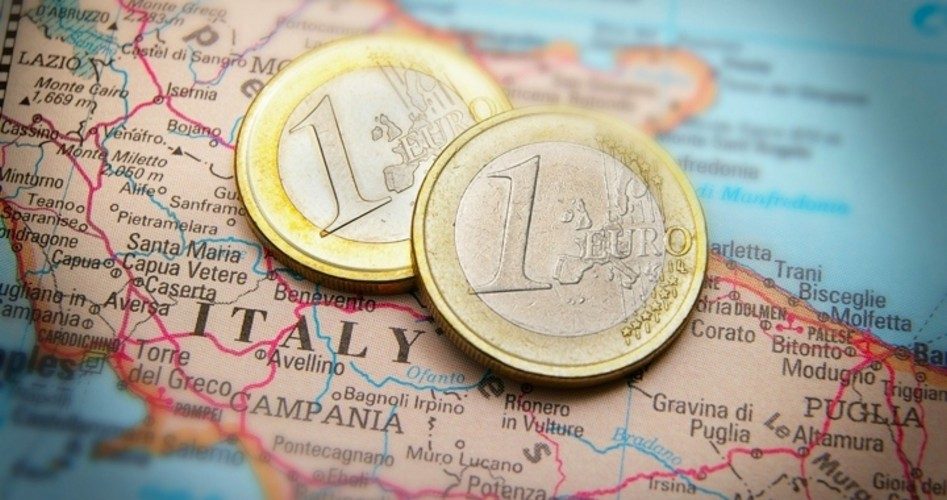
Moody’s Investors Service announced on July 12 that it was downgrading Italian government bonds by two more notches in response to the continuing financial problems plaguing the country. The Italian bond rating went from A3 to Baa2, which makes the sovereign debt instruments of seventh largest economy of the world just two notches ahead of junk bonds. The move — which took Italy by surprise — came at a bad time for the Italian government, which was auctioning off €5.25 billion on Friday.
Shortly after Moody’s announcement, Shane Oliver, chief economist at AMP Capital Markets in Sydney, Australia, observed,
I suspect it’s probably going to be a factor weighing on Italian bond yields or pushing up bond yields tonight and possibly adding to European fears tonight as well. It’s a sign of the times. I suspect we’ll be seeing this for a long time to come — ratings downgrades for key European countries.
In its analysis, Moody’s stated that it could take “a number of years” to normalize the sovereign debt market in Europe. The agency also predicted that it is increasingly likely that Greece will pull out of the eurozone, and that Spain — the 11th largest economy in the world — will need more outside financial help.
Italy’s national debt is currently €415 billion, or one quarter of its GDP. The very size of the Italian economy and the national debt, Moody’s noted, means that there is a limited capacity outside the nation to provide more help to sustain government finances.
Moody’s also reported that the Italian economy continues to falter. The rating service expects that the country’s GDP will shrink by two percent during 2012, making it harder for the government to meet its budgetary goals. Italy’s unemployment rate has also exceeded 10 percent for the third straight month, and retail sales plummeted in April by a disturbingly large 6.8 percent, the sharpest drop since 2001.
Although Moody’s acknowledged the reforms adopted (including stronger pension support and a commitment to balancing the budget by 2014), it believes that there are serious risks to these goals being reached. The ratings service noted that it might downgrade Italian government bonds more either if the Italian economy continued to weaken or if there were problems implementing the reforms that the current government supports. It noted that these problems threatened not only Italy’s government but all financial institutions in the nation.
One immediate effect has been to push even higher the interest that the Italian government must pay to those willing to invest in its bonds: as high as 6.08 percent on 10-year government bonds. That higher interest compounds the fiscal problems of the nation by requiring more revenue to be used simply to service existing debt.
Moody’s has not been alone in warning its customers about the potential problems with Italian debt. Standard & Poor’s downgraded Italian sovereign debt in January and the next month downgraded the credit rating of 34 large Italian banks. S&P had downgraded Italian government bonds just four months earlier, in September 2011. Fitch Rating, the other of the three largest of such services, downgraded Italian bonds by two notches in January 2012.
Shinji Kunibe, chief portfolio manager for Nissay Asset Management in Tokyo, noted,
Should Fitch cut Italy’s rating, it may trigger massive selling of the nation’s bonds by investors, including conservative Japanese pension funds and overseas money managers that have to sell based on credit ratings.
The Italian government responded angrily to the latest downgrade. Industry Minister Corrado Passera described it as “completely unjustified and misleading, because it does not take into account all the efforts that our country is making.” Other politicians in the country were just as upset. Fabrizio Cicchitto, Senate whip for the People of Freedom Party, declared that “the problem lies in Europe rather than Italy.” Rocco Girlanda, another member of that party, described the Moody downgrade as the “latest attack on Italy” and “the umpteenth interference of a political nature by a private agency against a sovereign state which is making efforts to raise the euro and tackle its huge public debt.”
Girlanda called for a commission to inquire into what he described as a campaign by Moody’s against Italy. Other Italian politicians from opposing parties also decried the downgrade. Some Italian prosecutors are even investigating Moody’s for possible criminal misconduct.


